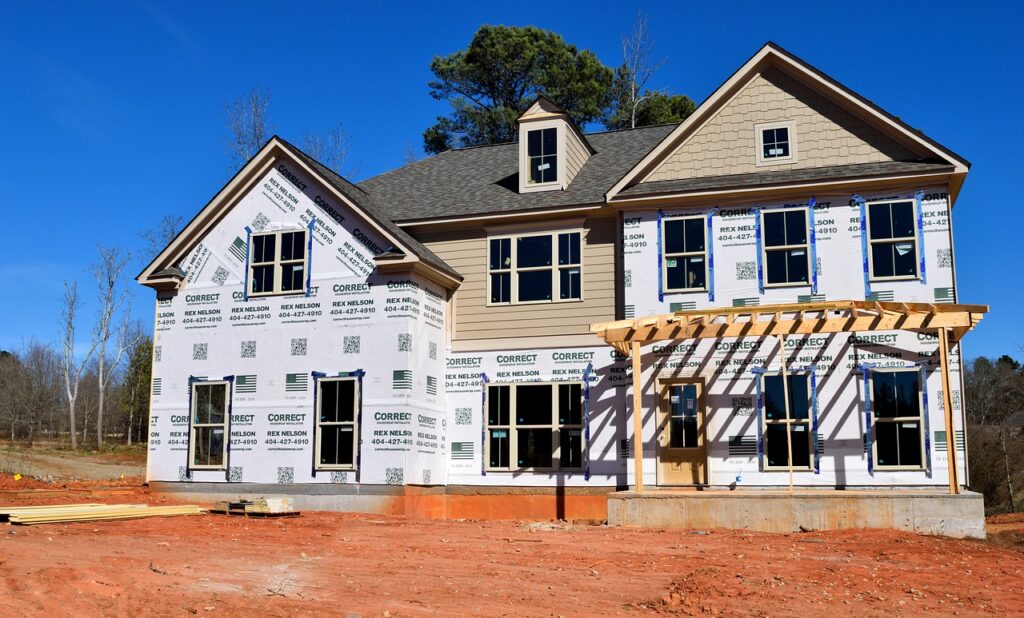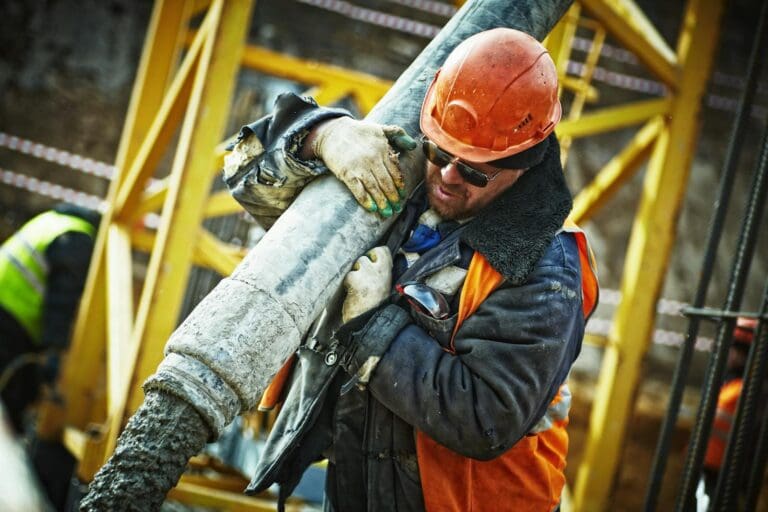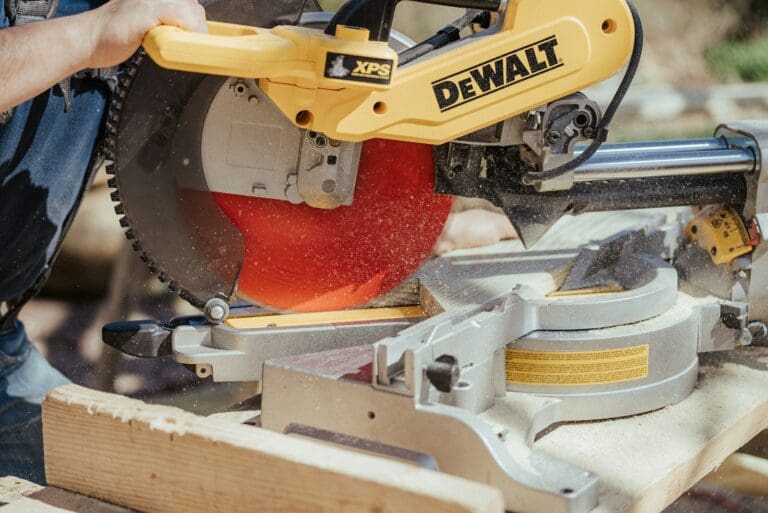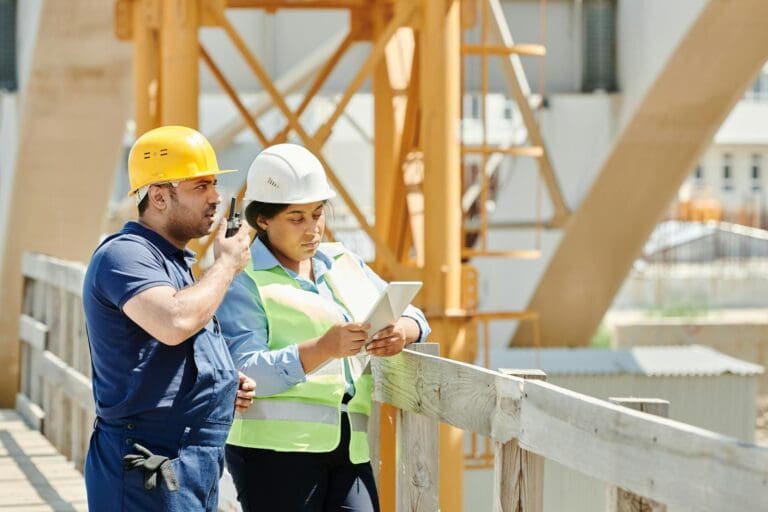Temporary construction workers, provided by staffing agencies like MGR Workforce, are professionals hired on a short-term basis for specific roles within the construction sector. Their skills could range from specialized areas such as concrete finishing and carpentry, to electrical work and plumbing.
Unlike full-time employees, these workers are engaged for a finite period which typically concludes once the project ends or there’s a shift in staffing requirements. These workers play a critical role in offering flexibility and a cost-effective approach to construction companies, allowing them to swiftly respond to market fluctuations and staffing needs without the financial or legal obligations associated with permanent employment.
Adaptability in the Face of Market Changes
One of the significant advantages of hiring temporary construction workers through MGR Workforce lies in the ability to quickly adapt to the demands of the market. If a construction company experiences a sudden upsurge in its service demand or undertakes a large-scale project, it can promptly onboard additional temporary workers to meet the increased requirements. This quick response not only ensures the project’s completion within the stipulated time but also upholds the quality standards as these temporary workers come equipped with substantial skills and experience in their respective fields.
Cost-Effectiveness and Risk Mitigation
Employing temporary construction workers can also lead to substantial cost savings and risk mitigation compared to hiring full-time employees. The process of hiring full-time staff usually entails providing additional benefits such as health insurance, paid time off, and other bonuses. These costs can become a burden to companies, especially if the full-time worker’s suitability for the job remains uncertain over the long term. By engaging temporary construction workers from MGR Workforce, companies can significantly reduce these costs and risks. As the staffing agency handles these workers, they are not categorized as permanent employees, thereby relieving the company of the associated obligations.

Access to Skilled and Experienced Workers
MGR Workforce’s temporary construction workers come with a wealth of knowledge and skills, often honed over years of experience. These professionals specialize in distinct areas like concrete finishing, building construction, or electrical work, which allows companies to engage workers who can hit the ground running, eliminating the need for comprehensive training. These workers often display a remarkable capacity to learn new tasks quickly, making them invaluable during high-pressure situations where meeting deadlines is crucial.
Increased Flexibility and Productivity
One of the primary benefits of employing temporary workers is the flexibility they bring to the table. In the event of project delays or a sudden change in the workforce requirements, it’s relatively easy to reassign temporary workers to other projects or tasks. This adaptability enables construction companies to maintain their productivity levels, even when they face unexpected challenges or changes in the project scope.
Bolstering the Performance of Permanent Staff
Temporary workers can also have a positive impact on permanent staff. By taking up some of the workload, they can free up full-time workers to concentrate on more complex or specialized tasks, thereby boosting productivity. Furthermore, the skills and fresh perspectives that temporary workers introduce can significantly enhance the overall job performance, fostering an environment of learning and growth for the permanent staff.

Impact on Project Efficiency
Integrating temporary construction workers from MGR Workforce into your team can also drastically improve project efficiency. As these workers are highly skilled and specialized in their fields, they can carry out their tasks proficiently, reducing the likelihood of errors and rework. Their experience and ability to adapt quickly also mean they can seamlessly fit into different project stages, ensuring a smooth flow of operations and timely project completion.
Enhancing Industry Competitiveness
By using the services of MGR Workforce, construction companies can enhance their competitiveness in the fast-paced and ever-evolving construction industry. By providing a way to quickly and efficiently scale up the workforce as needed, they can take on more projects and complete them successfully in less time. This adaptability and speed can give them a significant advantage over competitors who may rely solely on permanent employees.

Wrapping Up
In essence, temporary construction workers provided by MGR Workforce offer immense value to the construction industry. They present a dynamic, skilled, and adaptable workforce solution that can promptly react to market changes and industry needs. The implications of employing temporary construction workers are beneficial to all stakeholders – construction companies get to maintain competitiveness and efficiency, permanent employees enjoy a conducive work environment, and the workers themselves can find gratifying short-term employment opportunities.
Frequently Asked Questions
1. What are temporary construction workers?
Temporary construction workers are professionals hired for a limited period to undertake specific tasks within the construction sector. They are typically skilled in various areas such as concrete finishing, carpentry, electrical work, and are usually engaged for the duration of a specific project or until the company’s staffing needs change.
2. Why should a company consider hiring temporary construction workers?
Hiring temporary construction workers allows companies to swiftly adjust to market changes and fluctuating staffing needs. It offers cost savings by avoiding the financial obligations associated with permanent employment. Moreover, temporary workers bring skills and experience to the job, enhancing project quality and efficiency.
3. How can temporary construction workers help with cost savings?
Employing temporary workers from staffing agencies such as MGR Workforce can significantly cut costs related to health insurance, paid time off, and other benefits typically provided to full-time workers. Furthermore, these workers can be engaged as and when needed, reducing costs associated with overstaffing.
4. How can temporary construction workers help meet urgent project demands?
Temporary workers can be quickly on-boarded to meet increased project demands, ensuring timely completion while maintaining quality. These workers come equipped with substantial skills and experience in their respective fields, ready to hit the ground running.
5. Are temporary construction workers as skilled as permanent workers?
Absolutely. Many temporary construction workers are highly skilled in specific areas, bringing a wealth of knowledge and experience to the job. This means they can carry out tasks proficiently, reducing the need for extensive training.
6. What is the role of a staffing agency like MGR Workforce in providing temporary construction workers?
MGR Workforce sources, screens, and provides skilled temporary construction workers according to the company’s needs. They handle all employment-related responsibilities for these temporary workers, relieving construction companies from these obligations.
7. How does the employment of temporary workers impact permanent staff?
Temporary workers can help alleviate the workload of permanent staff, allowing them to focus on more complex tasks. They can also bring fresh perspectives and new skills to the job, enhancing the overall performance and creating a conducive learning environment.
8. How does the use of temporary construction workers improve project efficiency?
Temporary construction workers, with their specific skills and adaptability, can seamlessly integrate into different stages of the project. This reduces the likelihood of errors and ensures smooth operations, leading to timely project completion.
9. Can employing temporary construction workers enhance a company’s competitiveness?
Yes, by providing a means to swiftly scale up the workforce, companies can take on and successfully complete more projects in less time. This adaptability gives them a significant advantage over competitors who may rely solely on permanent employees.
10. What benefits do temporary construction workers themselves get?
Temporary construction workers get the opportunity to work on diverse projects, enhancing their skills and gaining varied experience. They also enjoy the flexibility of short-term employment and the possibility of transitioning to full-time roles if they perform well.















